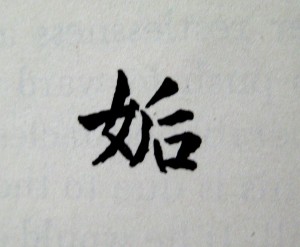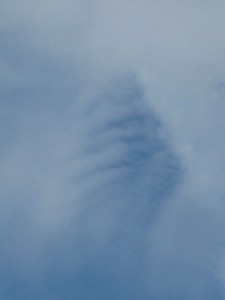
– Photo by Jan Ketchel
This morning I wrote a Soulbyte* in the early morning hours, just coming out of sleep and dreams, about forgiveness and love, about how they are the same thing, unconditional energies that guide us to acceptance of who we are. The Soulbyte was triggered by a dream I was having just before waking.
In the dream I was staring at a picture of myself at about age 10. I was dressed in my school uniform. I was focused on the face, saying to myself, “Yes, that’s me.” Chuck was next to me and I showed him the photograph. “See, that’s me,” I said, and then I took in the rest of the picture, looked at the full figure of my child self, sprawled out, looking groggy and stunned, perhaps drugged.
“It happened,” I said, as I saw that my clothing was messed up, my dressed pulled up and my legs spread wide, an obvious sexual assault having taken place. Here was a picture of the truth of my childhood. I could not deny that it was me and that I had been sexually abused.
“Yup, it happened,” I said without attachment, judgment, or emotional reaction. I took in the full picture as it was, an obvious fact, and accepted it.
A sexually abused person knows firsthand how hard it is to accept what happened, to forgive the self and to love the self. And so it is not unusual that both women and men who have been abused are reluctant to speak about what happened to them. They fear being judged and blamed, but the real challenge is to not judge and blame themselves. How can we speak of these things that happened to us publicly if we can barely speak of them to ourselves?
It can take years before a person is ready to even venture into memories, memories that may be so buried as to be completely blocked. It can take years before a person is ready to stop being so hard on the self, to stop torturing the self, and to begin a healing process of acceptance of life’s unfolding. It took me until I was almost 50 to begin looking at my life at a deeper level and to dare to remember. It felt like a brave thing to do, and to this day I know it was. It is the bravest thing I have ever done.
Sometimes things just happen to us. If we are curious we might ask ourselves why they happened. What did they mean in the greater context of our lives? What did we learn? How have we grown because of them, or in spite of them? What and who have we become because of what happened to us?
Often we regret what we lost, what we did not have the opportunity to become because of what happened to us. We feel cheated out of some aspect of life that could have and should have been. But at the same time we must accept that it is how our lives went, and what happened cannot be changed. Facts are facts, as I accepted in my dream as I looked at the picture of my abused child self.
In deep inner healing work, as we explore our sexual abuse in the context of our whole life, we are able to accept our pasts and move on into new life without attachment, self-pity, or regret. We can accept ourselves as strong beings, caring beings, compassionate and nonjudgmental beings, because we know something that many others do not know. We have been there, we have experienced the unimaginable.
As we grow and heal, through going more deeply into the darkness of our past, we are able to accept what happened to us without feeling like either a victim or a survivor because we know and experience ourselves are so much more than that. We are fully alive, energetic, spiritual, ever-evolving beings, not in spite of but because we have experienced both the light and the dark sides of life. We are more complete because of what happened to us.
Whether we’ve been abused or not, life challenges us every day to live a nonjudgmental, loving, and compassionate life, to learn to accept who we are so that we can fulfill the destiny of this lifetime. Perhaps it is to become just that nonjudgmental, loving, and compassionate being we have become. Perhaps it is to teach others how to become nonjudgmental, loving, and compassionate. Perhaps it is to prepare ourselves to finally live each day to the fullest, to be open to new experiences and new adventures like never before, to learn to trust that life loves us best when we dare to embrace it and fully accept its abundant offerings.
I dreamed my dream last night because I am working on the next book in The Recapitulation Diaries. As I have worked through each book over the past several years I have faced once again the things that happened to me, the things I recapitulated during the years 2001 to 2004, and I get to experience just how healing that process was. My dream shows my complete acceptance. This is what I wish and pray for everyone who has been abused, that they too begin the brave work of real healing.
No life is meaningless. No experience is meaningless. There is something of importance in everything that happens to us.
*Here is the Soulbyte referenced above:
Soulbyte for Thursday October 19, 2017
What is forgiveness but the ability to give unconditionally without attachment, without need for anything in return. What is forgiveness really? It is love. And what is love but unconditional forgiveness, for true love is ready and willing to be given unconditionally, for it attaches to nothing and needs nothing in return. Can you forgive yourself, love yourself unconditionally? That is the greatest challenge that love and forgiveness pose. Forgiveness=Love. Love=Forgiveness. They are one and the same.
-From the Soul Sisters, Jan & Jeanne
-A Blog by J. E. Ketchel, Author of The Recapitulation Diaries





